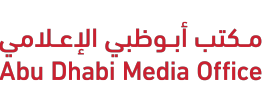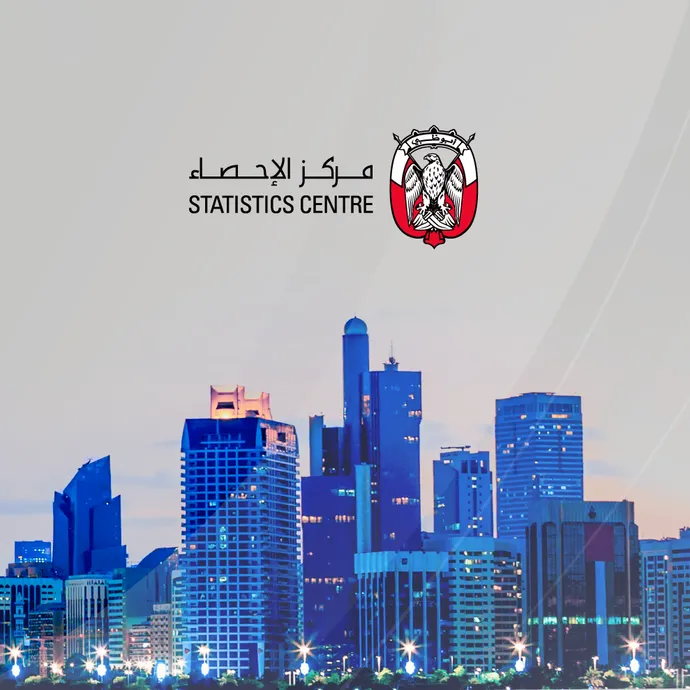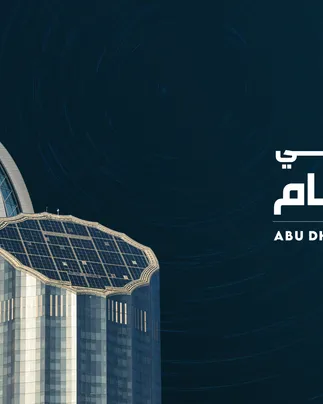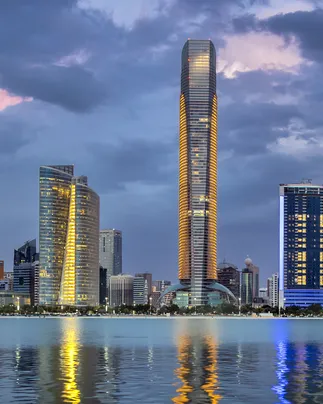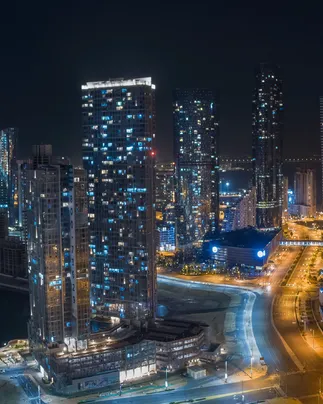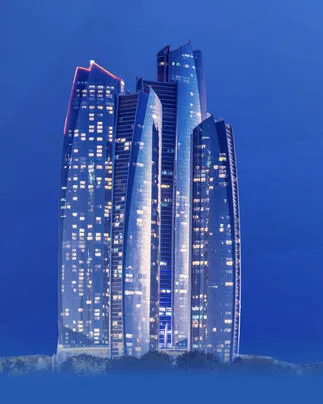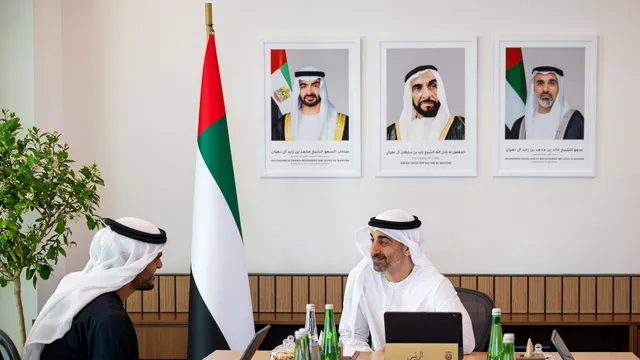The Statistics Centre - Abu Dhabi (SCAD) has reported that the emirate’s Gross Domestic Product (GDP) reached AED291 billion in the first quarter of 2025, recording a 3.4 per cent increase compared to the same period in 2024. This performance is driven by the strength of the non-oil economy, which expanded by 6.1 per cent year-on-year, reaching AED163.6 billion. For the first time in Q1 period, the non-oil sector contributed 56.2 per cent of the total GDP, while the oil sector accounted for the remaining 43.8 per cent, equivalent to AED127.4 billion. The results highlighted the effectiveness of Abu Dhabi’s ongoing efforts to diversify its economic base.
These achievements underscore the emirate’s success in building a broad-based and resilient economy. With momentum driven by manufacturing, construction, financial services, real estate and trade, the Q1 results reflect strong fundamentals and well-coordinated economic strategy.
His Excellency Ahmed Jasim Al Zaabi, Chairman of the Abu Dhabi Department of Economic Development (ADDED), said: “Day after day, Abu Dhabi’s economy is reaffirming the success of the emirate’s long-term strategy and the effectiveness of timely policies and measures to address changes and challenges in regional and global landscape. Our Falcon Economy orchestrates multi-dimensional strategies across different sectors, enabling us to build synergies and work in tandem to achieve Abu Dhabi and the UAE’s strategic objectives.
“The continued strong performance of non-oil sectors, accounting for 56.2 per cent of the total GDP in Q1-2025, is a testament to this vision. The manufacturing sector’s steady growth reflects Abu Dhabi’s Industrial Strategy’s (ADIS) success in turbocharging the sector and enhancing the emirate’s status as a magnet for highly skilled talent, businesses, and quality investments. We remain committed to future-proof our economy, building world-class hubs for financial services, advanced manufacturing, AI, trade and logistics, and new energy.”
His Excellency Abdulla Gharib Alqemzi, Director General of the Statistics Centre - Abu Dhabi, said: “The first quarter of 2025 reaffirms the strength, adaptability, and maturity of Abu Dhabi’s economic model. Our transition toward a diversified, knowledge-based economy continues to gain momentum, with high-growth sectors like manufacturing, construction, and financial services driving sustainable expansion.
“This economic resilience is particularly vital as Abu Dhabi’s population continues to grow, reaching 4.14 million residents in 2024. Sustained economic growth is not only a sign of vitality, it’s essential for supporting public services, investments, and the well-being of our expanding community. SCAD remains committed to providing trusted, timely data that informs decision-making and supports inclusive, long-term development.”
The manufacturing sector continued to lead the non-oil economy with a total value added of AED28.5 billion in Q1 2025. It grew by 5 per cent compared to the same period last year and contributed 9.8 per cent to the emirate’s total GDP.
In Q1 2025, the sector maintained its upward momentum, with the number of new industrial licences increasing by 4.7 per cent year-on-year, and the number of factories that progressed from under construction to production stage surged by 65 per cent, underscoring the industrial sector’s continued vitality and operational expansion.
Construction activity experienced an expansion of 10.2 per cent in Q1 2025, reaching a total value of AED27.5 billion and contributed 9.4 per cent in the GDP of the emirate. The performance is linked to continued investment in infrastructure, housing, and urban development. Recent initiatives such as the launch of the Binaa digital building permit platform, powered by artificial intelligence, are expected to further enhance project delivery and regulatory efficiency across the construction landscape.
The finance and insurance sector demonstrated robust growth, increasing by 9.1 per cent compared to Q1 2024 and generated AED19.6 billion in value. This sector contributed 6.7 per cent to the total GDP, benefiting from Abu Dhabi’s growing reputation as a regional and international financial hub.
In the first quarter of 2025, ADGM saw a 43 per cent rise in registered financial institutions and a 33 per cent increase in assets under management compared to the same period last year. Regulatory updates and expanded investment programmes have helped attract global financial firms to establish operations in the emirate. During the same period, the Abu Dhabi Securities Exchange (ADX), the second largest exchange in the MENA region, posted a strong performance. Its market capitalisation rose 3.2 per cent to exceed AED2.93 trillion, and foreign net investment skyrocketed by 151 per cent to over AED8.5 billion, showing the growing confidence of international investors in Abu Dhabi’s economy.
The wholesale and retail trade sector grew by 3.6 per cent in Q1 2025, with a total value of AED16 billion and a 5.5 per cent contribution to GDP. This reflects continued consumer confidence, supported by steady population growth and tourism recovery. The sector is also benefiting from Abu Dhabi’s expanding global trade relations aimed at unlocking access to broader markets and reinforcing trade activity.
Professional, scientific and technical services, including administrative support activities, stood at 10.3 per cent, supported by rising demand for business services and knowledge-based professions. The Arts and Entertainment services grew by 8.4 per cent, reinforcing the role of cultural attractions and tourism in economic growth and diversification.
The transportation and storage sector expanded by 7.5 per cent, reflecting Abu Dhabi’s strategic logistics role and growing connectivity. Real estate activities increased by 6.7 per cent, with ongoing investment in residential and commercial development projects. The health sector grew by 5.2 per cent, aligning with broader public service enhancements and efforts to improve quality of life.
As Abu Dhabi’s population reached 4.14 million residents in 2024, up from 3.8 million in 2023, its non-oil GDP continues to support the emirate’s expanding population through sustained economic growth. This demographic trend reflects economic vitality and the government’s long-term vision for sustainable development.
Alongside this demographic momentum, Abu Dhabi’s AED13 billion Digital Strategy (2025–2027) is driving the emirate toward becoming the world’s first fully AI-native government by 2027. By automating all government processes, the strategy aims to boost efficiency, enhance service delivery, and stimulate innovation-driven economic growth – reinforcing Abu Dhabi’s position as a global leader in data-driven, sustainable development.
